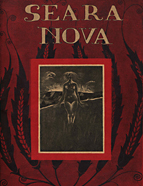

................................
Finally, it was the very "spiritual and constructive revolution" to which the seareiros were devoted . (Sérgio, Correspondência [ Correspondence ] , p. 38). Dispelling the ghosts of the past, which they sought to understand and interpret in order to better distance themselves from them, without wishing to return to them b ecause, as Cortesão would confess, "no nation can live perpetually and exclusively on its traditions." It was necessary to start from a grounded historical interpretation "so as not to fall into a narcissistic traditionalism." (Cortesão, At 40 ). Thus, they sought to combat the "nationalism" that Raul Proença classified as "retrospective and sentimentalist, living off the dead and the memory of the dead, like a kind of necrolatry, leading us to the constant remembrance and commemoration of past glories." (Proença, Pages , IV, p. 17). For the seareiros , on the other hand, history imposed a critical vision and incited a clarifying and reforming prospective for society. And the "most important reform— the preliminary condition of all others—is always the reform of mentality." (Sérgio, in Seara Nova , p. 37). A n ational reform that, according to Raul Proença , should be a "structural, organic modification of our collective life." (Proença, Páginas ... , 2nd series, p. 257) - the p urposes and trajectory mercilessly interrupted by the dictatorship.
Although conditioned and always carefully monitored, the magazine continued to host essayists and other writers and accepted historical writings, especially on contemporary history, from authors such as Fernando Piteira Santos, Joel Serrão, Joaquim Barradas de Carvalho, and José Manuel Tengarrinha – some using pseudonyms. Under the direction of Augusto Casimiro (1961-1967), Rogério Fernandes (1967-1969), Augusto Abelaira (1969-1973), and Manuel Rodrigues Lapa (1973-1975), it maintained the same orientation, advocating for the establishment of democracy – without defining a specific form, given the different political positions and social ideals converging within it. The collaboration of historians – starting with Jaime Cortesão, who did not accompany António Sérgio in his departure in 1939 – continued, but there was no continuity in the attempt to find a common historiographical support for the critical doctrine that has been referred to as 'prospective patriotism' (Amaro, “A revista” ["'The magazine"], p. 31) which the magazine sought to sustain.
This work is financed by national funds through FCT - Foundation for Science and Technology, I.P, in the scope of the projects UIDB/04311/2020 and UIDP/04311/2020.
